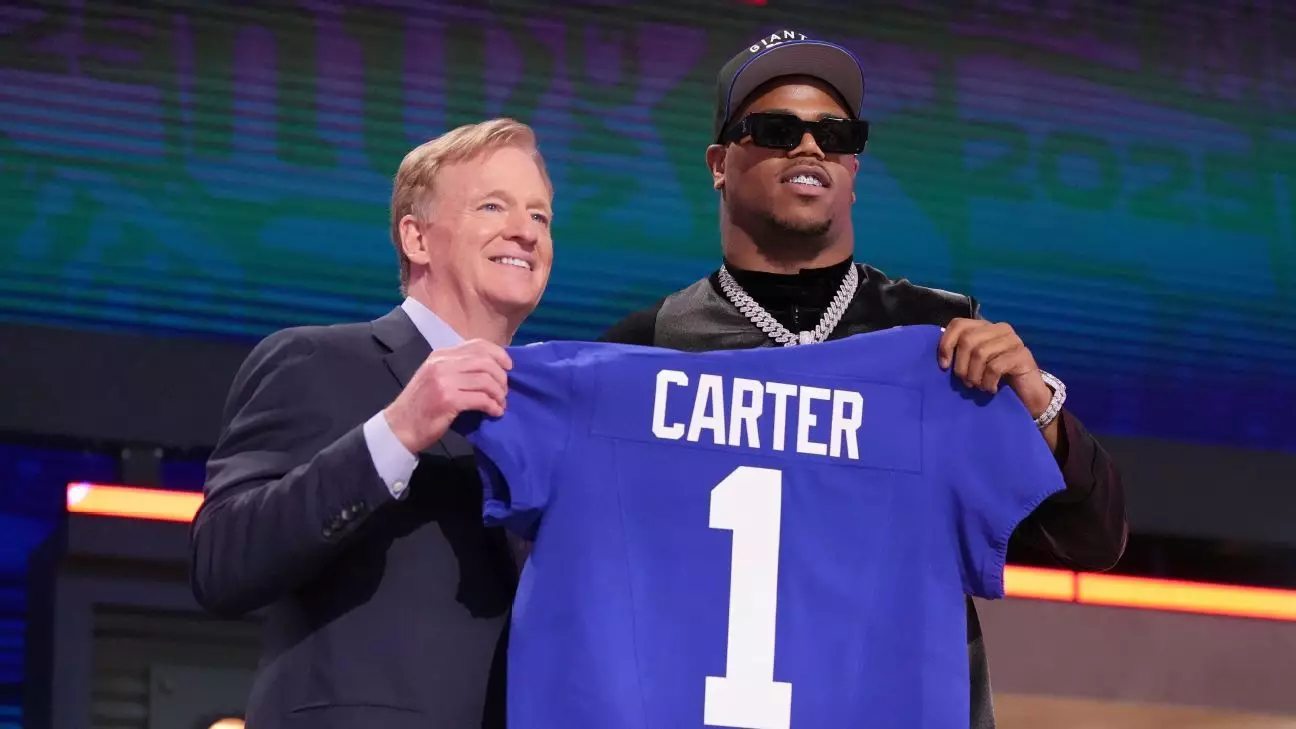The NFL Draft is a momentous occasion for aspiring football players, filled with anticipation, anxiety, and hope. However, for some rookies, a cloud of mischief has overshadowed this life-changing event. Rookie pass rusher Abdul Carter of the New York Giants recently fell victim to an ill-timed prank call. In a humorous yet concerning episode, agent Drew Rosenhaus disclosed details about the call that came from a fake representative of the Jacksonville Jaguars. The incident not only underscores the practical jokes that can flourish in high-pressure environments but also raises questions about the seriousness of such distractions during a pivotal moment in young athletes’ careers.
The Culture of Prank Calls in the NFL
This prank call phenomenon isn’t an isolated incident but rather a part of a broader culture that seems to evolve around the NFL Draft. With high stakes involved, the pressure escalates, and some individuals opt for unethical humor at the expense of young athletes. The incident involving Rosenhaus and Carter is alarmingly symptomatic of a troubling trend. Reports reveal that multiple players, including Mason Graham, Tyler Warren, Kyle McCord, and Chase Lundt, received similar prank calls during the draft, indicating that this was not an isolated mishap but perhaps a coordinated series of misleading pranks. The ramifications go beyond mere annoyance. Calls like these can erode the confidence of young players, already grappling with the fear of unfulfilled expectations.
Behind the Seriousness
The NFL’s response to these antics, such as the hefty fines imposed on the Atlanta Falcons for a related incident involving defensive coordinator Jeff Ulbrich’s son, reveals an attempt to address the seriousness of these disruptions. A fine of $250,000 for a franchise is no small matter; it reflects a deeper concern for integrity and professionalism during a sensitive period in the lives of these young players. Draft day should be about celebrating talent and ambition, not subjecting rookies to prank calls that sow confusion and doubt. Rosenhaus himself acknowledged the unfortunate reality of such disruptions. His assertion that he and Carter recognized the call as frivolous is reassuring, but it raises the uncomfortable question: What about those who might not dismiss such calls so readily?
Call for Accountability
As the NFL investigates these prank calls and their origins, it is crucial for the league to take a firm stance against such behaviors. Establishing protocols that protect players during the draft and discourage ill-timed humor will not only safeguard their experience but also cultivate a culture of respect within the sport. The emotional rollercoaster that comes with being drafted is already fraught with challenges; the last thing these players need is to contend with bogus claims that disrupt their focus.
In a world where every moment can be monumental, trivializing that experience with prank calls is not just irresponsible; it’s a disservice to the very essence of sport. The NFL must act decisively to ensure that athletes like Abdul Carter can embrace their draft day without the shadows of pranksters looming over their achievements.

